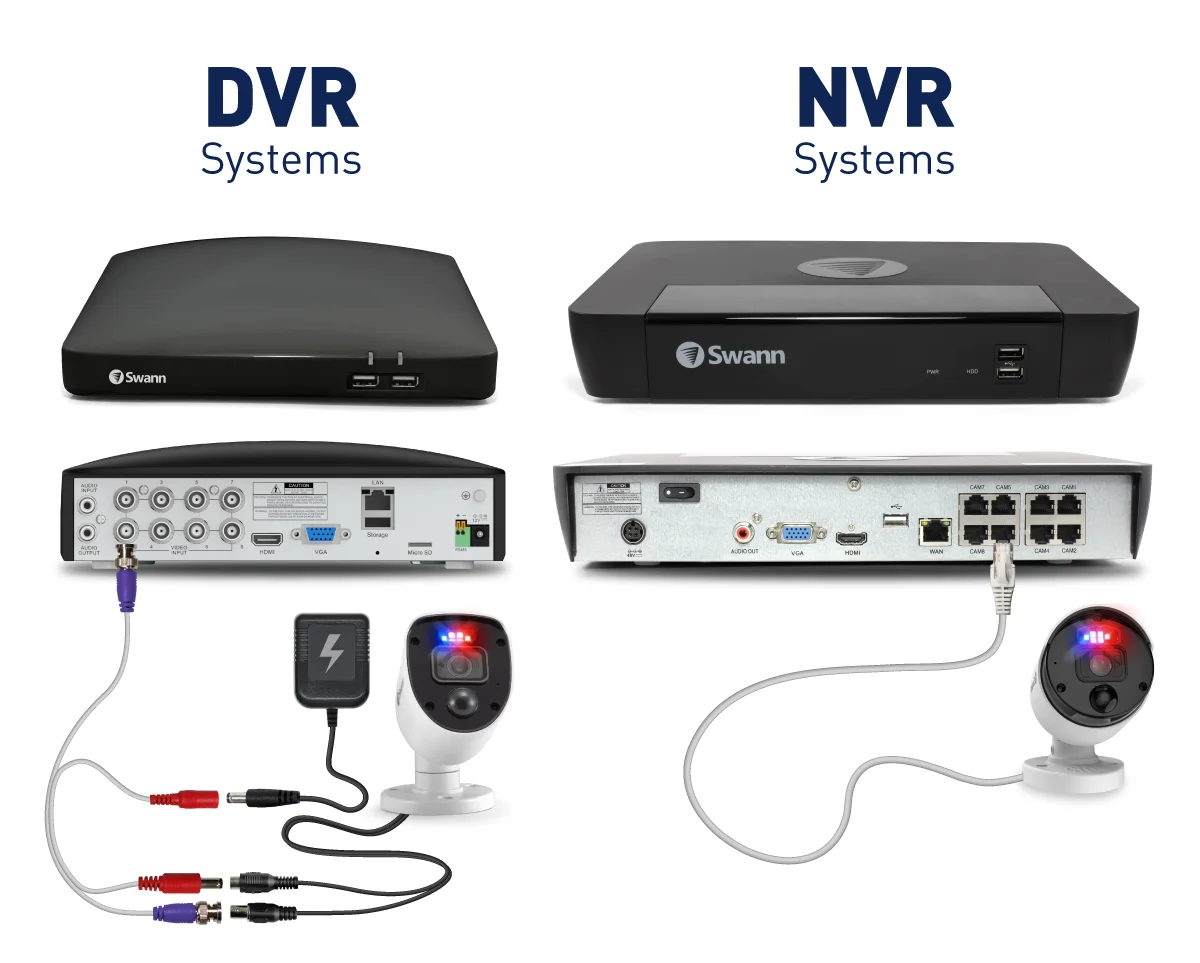How does a digital video recorder (DVR) work?


A digital video recorder (DVR) is a device that has revolutionized the way we watch and record television shows. With DVR technology, we no longer have to worry about missing our favorite shows or being tied to the TV schedule. In this article, we will explore how a digital video recorder works and the various features it offers to enhance our TV viewing experience.
Recording TV Shows
One of the primary functions of a DVR is to record TV shows. When you schedule a recording, the DVR captures the incoming television signal and converts it into a digital format. This digital video stream is then compressed and stored on the DVR’s hard drive for later playback.
Playback Features
DVRs offer a range of playback features that allow users to control their viewing experience. These features include pause, rewind, fast-forward, and slow-motion. With the ability to pause live TV, you can take a break during a show and resume watching when you’re ready. Rewind and fast-forward options let you skip commercials or go back to catch a missed moment. Slow-motion playback allows you to analyze a scene in detail.
Time-Shifting
Time-shifting is a unique feature of DVRs that allows you to watch a show while it is still being recorded. This means you can start watching a program from the beginning, even if you tuned in late. Time-shifting gives you the flexibility to watch TV on your own schedule, making it convenient for those with busy lifestyles.
Video Compression
Video compression is a crucial aspect of DVR technology. It allows for efficient storage of recorded content on the DVR’s hard drive. When a TV show is recorded, the DVR uses video compression algorithms to reduce the file size without significantly compromising the quality. This compression ensures that you can store a large number of recordings on the DVR’s limited storage capacity.
Hard Drive Storage
DVRs come with built-in hard drives that provide storage space for recorded TV shows. The size of the hard drive determines how many hours of content you can store. Some DVRs also allow for external storage expansion, such as connecting an external hard drive or using cloud storage. This flexibility ensures that you never run out of space for your favorite shows.
TV Recording
To schedule a recording on a DVR, you can use the on-screen program guide or manually input the date and time. The DVR will then tune into the selected channel at the specified time and start recording. Some DVRs also offer the option to record an entire series, so you don’t have to remember to schedule each episode individually.
TV Viewing Experience
DVRs have significantly improved the TV viewing experience. With the ability to record shows, you no longer have to worry about missing an episode or conflicting schedules. You can watch your favorite shows at your convenience, whether it’s during your lunch break or late at night. The playback features, such as pause and rewind, allow you to control your viewing experience and catch every detail. Time-shifting lets you start watching a show from the beginning, even if you join in late. All these features combine to provide a more flexible and enjoyable TV viewing experience.
In conclusion, a digital video recorder (DVR) works by capturing and converting the incoming television signal into a digital format. It then compresses and stores the digital video stream on its hard drive for later playback. DVRs offer a range of features, including recording TV shows, playback controls, time-shifting, video compression, and hard drive storage. These features enhance the TV viewing experience by allowing users to watch their favorite shows at their convenience and control their viewing experience. With a DVR, you never have to worry about missing a show or being tied to the TV schedule again.
Recent Posts
How do I create an engaging and informative online quiz or assessment?
Creating an engaging and informative online quiz or assessment can be a powerful tool for… Read More
What are the most effective methods for managing and reducing work-related stress in the hospitality industry?
Work-related stress is a common issue in the hospitality industry, where employees often face long… Read More
How can I improve my assertiveness and communication skills in a leadership position?
In a leadership position, assertiveness and effective communication skills are crucial for success. Being able… Read More
What are the key elements of a successful employee recognition and rewards program?
Employee recognition and rewards programs play a crucial role in motivating and engaging employees, as… Read More
How do I effectively manage and respond to customer feedback and reviews?
Customer feedback and online reviews play a crucial role in shaping a company's reputation and… Read More
What are the best strategies for effective time management as a stay-at-home parent?
Effective time management is crucial for stay-at-home parents who juggle multiple responsibilities on a daily… Read More